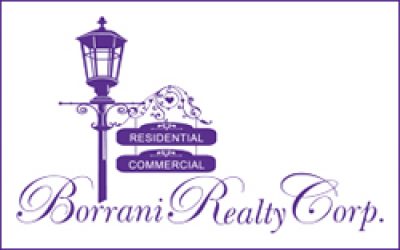Real Estate Glossary
Addendum – Something added. A list or other material added to a document, letter, contractural agreement, escrow instructions, etc. (See also: Amendment)
Amendment – A change, either to correct an error or to alter a part of an agreement without changing the principal idea or essence.
Appraisal – An opinion of value based upon factual analysis. Legally, an estimation of value by two disinterested persons of suitable qualifications.
Annual Percentage Ratge (A.P.R.) – The yearly interest percentage of a loan, as expressed by the actual rate of interest paid. For example: 6% add-on interest would be more than 6% simple interest, even though both would say 6%. The A.P.R. is disclosed as a requirement of federal truth in lending statutes.
Assumption of Mortgage – Agreement by a buyer to assume the liability under an existing note secured by a mortgage or deed of trust. The lender usually must approve the new debtor in order to release the existing debtor (usually the seller) from liability.
Beneficiary – (1) One for whose benefit a trust is created. (2) In states in which deeds of trust are commonly used instead of mortgages, the lender (mortgagee) is called the beneficiary.
Close of Escrow- The date that title passes from seller to buyer and documents are recorded.
CC&R’s – Covenants, Conditions, and Restrictions. A term used to describe the restrictive limitations which may be placed on a property.
Chain of Title – The chronological order of conveyance of a parcel of land from the original owner (usually the government) to the present owner.
Cloud of Title – An invalid encumbrance on real property, which, if valid, would affect the rights of the owner. The cloud may be removed by quitclaim deed, or, if necessary, by court action.
Comparable Sales – Sales of properties used as comparisons to determine the value of a specific property.
Conveyance – Transfer of title to a property. Includes most instruments by which an interest in real estate is created, mortgaged or assigned.
Counter-Offer – An offer (instead of acceptance) in response to an offer. For example: A offers to buy B’s house for X dollars. B, in response, offers to sell to A at a higher price. B’s offer to A is a counter offer.
Deed – Actually, any one of many conveyance or financing instruments, but generally a conveyancing instrument given to pass fee title to property upon sale.
Deed of Trust – An instrument used in many states in place of a mortgage. Property is transferred to a trustee by the borrower (trustor), in favor of the lender (beneficiary), and reconveyed upon payment in full.
Disclosure – To make something known. All disclosures should in writing when dealing with real estate interests and real property.
Discount Points – The amount paid to increase the yield. Discount points are up-front interest charges to reduce the interest reate on the loan over the term of the loan. Each point equals one percent of the face value of the loan.
Due on Sale Clause – An acceleration clause that required full payment of a mortgage or deed of trust balance when the secured property changes ownership.
Earnest Money – Money given by the buyer with an offer to purchase. Shows good faith.
Easement – A right created by grant, reservation, agreement, prescription, or necessary implication, which one has in the land of another. It is either for the benefit of the land (appurtenant), such as the right to cross A to get to B, or “in gross”, such as a public utility easement.
Escrow – Delivery of a deed by a Grantor to a third party for delivery to the Grantee upon the happening of a contingent event. Modernly, in some states, all instruments necessary to the sale (including funds) are delivered to a neutral third party with instructions as to their use.
Fair Market Value – Price that probably would be negotiated between a willing seller and a willing buyer in a reasonable time. Usually arrived at by the comparable sales in the area.
Hazard Insurance – Real Estate insurance protecting against loss caused by fire, some natural causes, vandalism, etc., depending upon the terms of the policy.
Homeowners Association – An association of people who own real property in a given area, formed for the purpose of improving or maintaining the quality of the area. Also an association formed by the builder of condominiums or planned developments, and required by the statute in some states. The builder’s participation as well as the duties of the association are controlled by statute.
Homestead Exemption – Every person the age of 18 or over, married or single, who resides within Arizona, is entitled to a homestead. A.R.S. 33-1101(A). This homestead is an exemption that precludes most creditors from reaching the first $100,000 of equity in a person’s residence. The homestead exemption does not apply to a consensual lien, such as a mortgage or deed of trust. A.R.S. 33-1103. Homeowners do not need to take any action to assert the homestead because the exemption attaches by operation of law. A.R.S. 33-1102. The homestead also attaches automatically to a person’s interest in identifiable cash proceeds from the voluntary or involuntary sale of the homestead property. Each person or married couple may hold only one homestead. A.R.S. 33-1101 (B). Therefore, if a person has more than one property, a creditor may require the person to designate which property is protected by the homestead exemption. A.R.S. 33-1102 (A)
Impounds- Account held by lender for payment of taxes, insurance and other periodic debts against real property required to protect their security.
Lien – An encumbrance against a property for the repayment of a debt. Examples include judgements, taxes, mortgages and deeds of trust.
Mortgage – The instrument by which real estate is pledged as security for the repayment of a loan.
Mortgage Insurance – Insurance written by an independent mortgage insurance company protecting the mortgage lender against loss incurred by a mortgage default, thus enabling the lender a higher percentage of the sales price.
PITI – Payment that combines the principal, interest, taxes and insurance.
Power of Attorney – An authority by which one person (principal) enables another (attorney in fact) to act for him.
Public Report – A report given to prospective purchasers in a new subdivision, stating the conditions of the area and development (cost of common facilities, utility providers, availability of schools, proximity to airports and freeways, etc.) issued by the Department of Real Estate.
Purchase Agreement – An agreement between a buyer and seller of real property, setting forth the price and terms of the sale.
Quitclaim Deed – A deed operating as a release; intended to pass any title, interest, or claim which the Grantor may have in the property , but not containing any warranty of a valid interest or title by the Grantor.
Realtor – A designation given to a real estate broker or sales associate who is a member of a board associated with the National Association of Realtors or with the National Association of Real Estate Boards.
Recording – Filing documents affecting real property with the County Recorder as a matter of public record.
Subdivision – The division of one parcel of land into smaller parcels (lots) created by filing a subdivision plat with the governmental authority (city or county) and receiving approval from the governmental authority.
Title – The evidence one has of right to possession of land.
Warranty Deed – A deed that conveys fee title to real property from the Grantor (usually the Seller) to the Grantee (usually the buyer).
1031 Exchange – A tax deferred or 1031 exchange is a transactions involving the transfer of investment or income property and the receipt of like-kind property which will be used as income or investment property. When certain criteria are met, as set forth in section 1031 of the Internal Revenue Code, the income taxes on any gain realized from the sale of the relinquished property are deferred.

